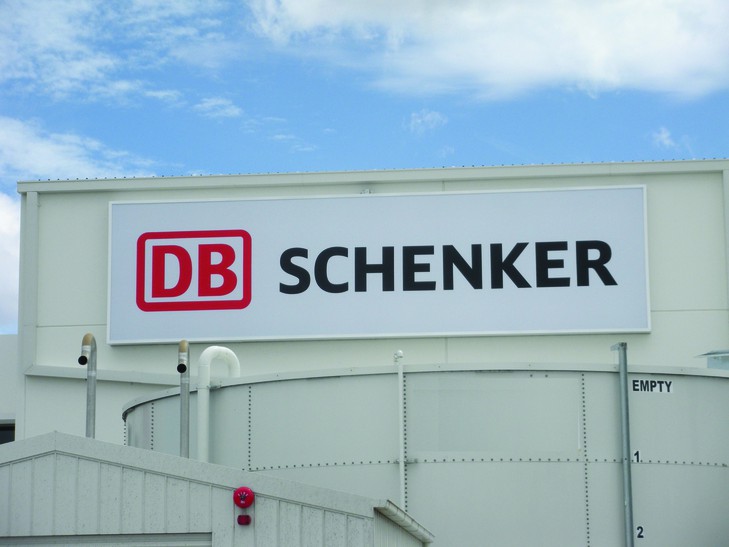
If the air cargo community was under any illusion that its efforts to
speed up door-to-door delivery and eliminate paper documents are
winning over shippers, it may have to think again,
writes Martin Roebuck.
Two major shippers tore into the industry for its poor service
quality and communication in a no-holds-barred session at the World
Cargo Symposium (WCS) in Shanghai.
Of more than 330 shippers who responded to a recent global IATA’s
survey, 94 per cent ship some product by air, explained Tom Windmuller,
the association’s senior VP airports, passenger, cargo and security.
Scoring the industry from zero to 10, they gave the industry an average
performance rating of 7.08.
Asked to give his own satisfaction rating, Robert Mellin, head of
distribution logistics at Ericsson, awarded the industry a five. Alex
Xu, associate supply chain director at Lilly Suzhou Pharmaceutical, said
that five years ago he would have rated airfreight at seven or eight,
but now it would be between six and seven.
It is not so much that standards are deteriorating, but the industry
is perceived as struggling to keep up with customers’ evolving demands.
Windmuller said seven per cent of survey respondents were unhappy
with their air freight service provision on some level. “That’s $4bn at
risk [in terms of potential lost revenue],” he said. “But it’s more. We
all know what unhappy customers do - they talk.”
Ericsson has reduced its use of airfreight “quite drastically,” but
still flies up to 80,000 tonnes of freight per year to more than 160
destinations, Mellin said.
“We don’t it for fun, but because it’s essential.
“Speed and agility, the ability to act the right way when things
happen, is vital for us. We are very keen to have better service but we
haven’t seen so much happening in the last 10 years.”
While the slow migration to e-air waybills (e-AWBs) was welcome,
Mellin said that “at the same time we’ve seen surface transportation
moving rapidly forward. Everybody knows the problem – crucial
information doesn’t go through, documents are missing - it’s so old
fashioned, somehow. We’re totally disconnected. The technology is there,
but information sharing is not. We’re protectionist.”
Xu said that air is Lilly’s major international transport mode, and
as the company develops new bio-medicines, more products will be
temperature sensitive.
“New regulations are controlling the external business environment,
pushing us to try and find the most effective ways to manage quality
control and logistics. But talking with air freight forwarders, they say
‘I don’t understand, we don’t have this information’ when there is a
temperature excursion between Europe and China.”
Lilly discovers whether there has been a problem on the truck, in the
aircraft or while awaiting loading only when it interrogates the
shipment afterwards, Xu said. “We have other modes we can choose, such
as shipping, which can provide a more stable temperature.”
Fellow panellist Chris Welsh, secretary general of the Global
Shippers Forum, said that recent conversations with retailers and
automotive, pharmaceutical and electronics shippers mostly only use
airfreight when they really have to.
“It’s a distress purchase and if can ship by another mode, they will
do it for reasons of cost or sustainability. The airfreight supply chain
needs to be so much slicker than it is,” Welsh said.
Airfreight forwarders see pharmaceuticals as a major opportunity, but
shippers have told Welsh that the industry is trying to sell a product
without understanding the pharma industry’s requirements.
“Road and even rail offer total integrity in terms of temperature
control. There are gaps in the air cargo supply chain when it goes from
the warehouse on to the ramp. That’s where you get the product
failures,” Welsh claimed. But an industry that is highly dependent on
airfreight – “or was” – is discovering that suppliers “can’t get their
act together”.
Asked if shippers were prepared to pay for better supply chain data,
Mellin said a cloud-based IT solution in the next 12 to 18 months was
necessary if air freight was to maintain its transportation share.
Greater efficiency would “drive cost down, not up,” he said. “But we are
part of the problem too. We need to collaborate, we’re not optimising.”
Third-party logistics providers were not happy to let shippers have
three-way dialogue, so Ericsson had very little contact with airlines,
Mellin said. Astonishingly, he admitted: “The first time I walked
through an airport and saw the whole process was last Friday. The 3PLs
hate that, because they worry what else I will see.”
Source : http://www.aircargonews.net/news/single-view/news/wcs-shippers-slam-poor-service.html





.jpg)





